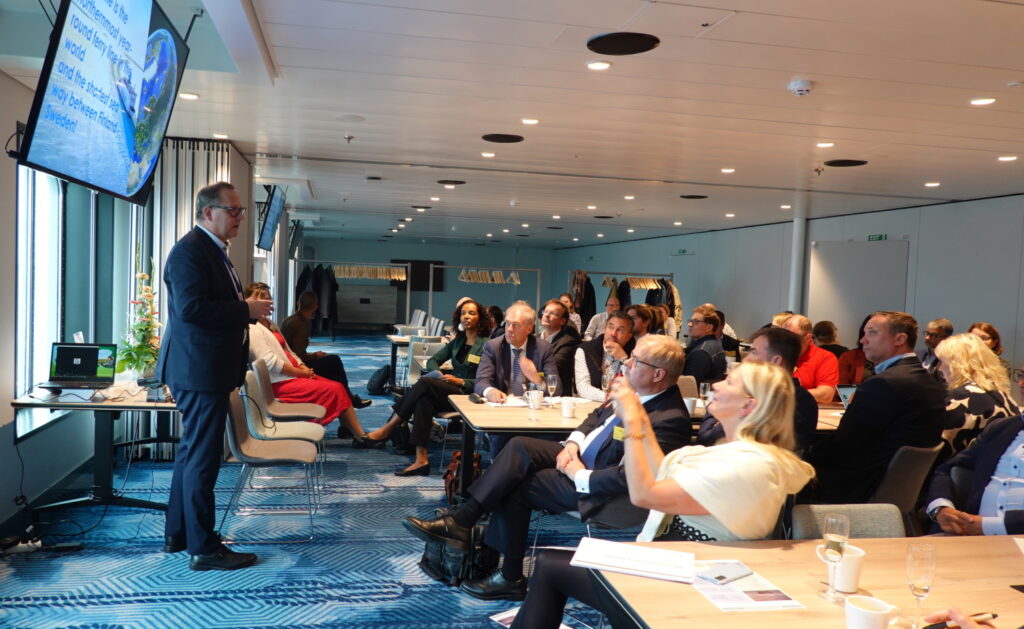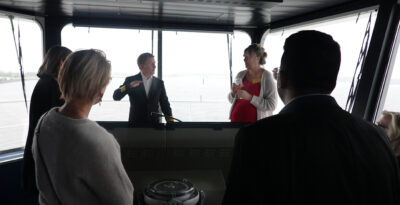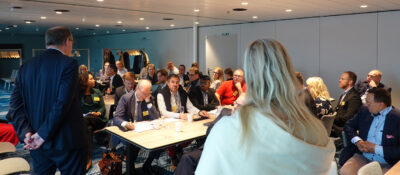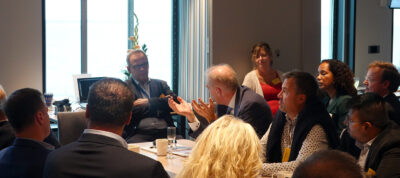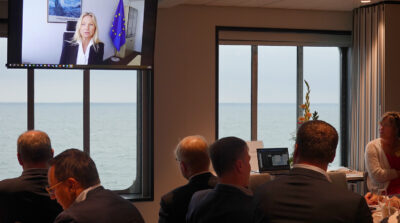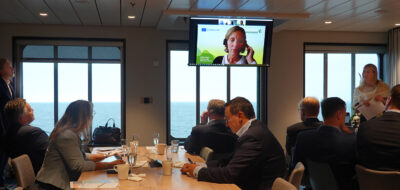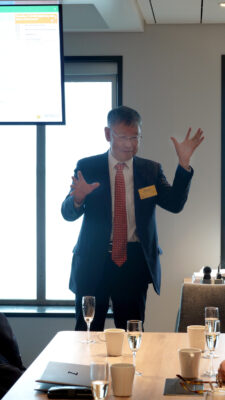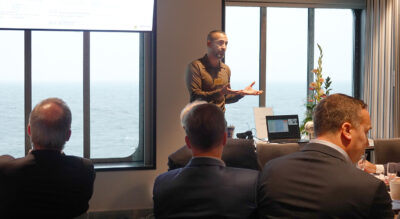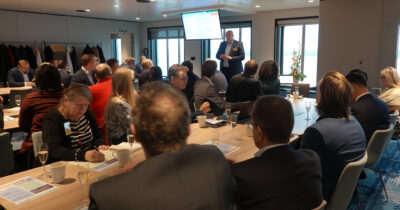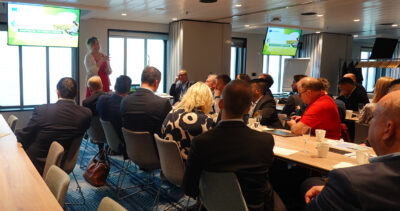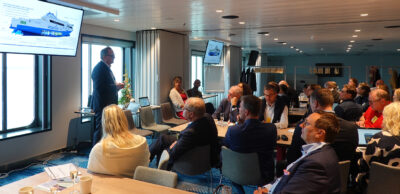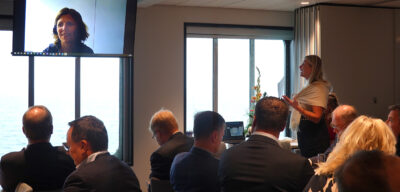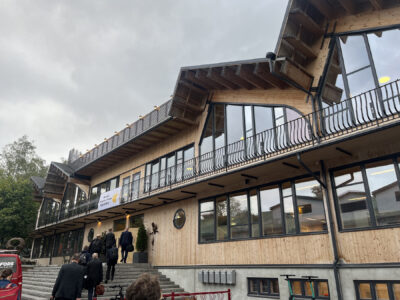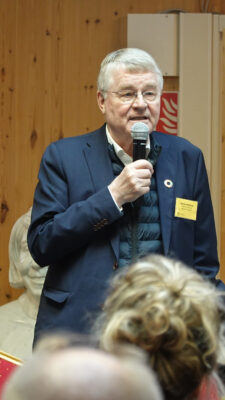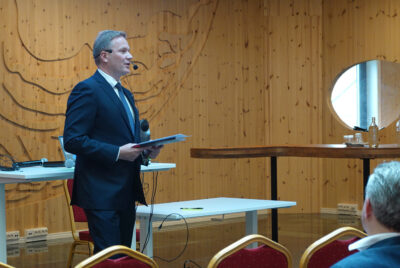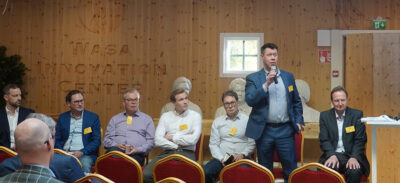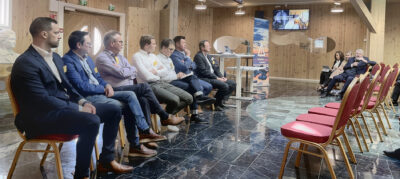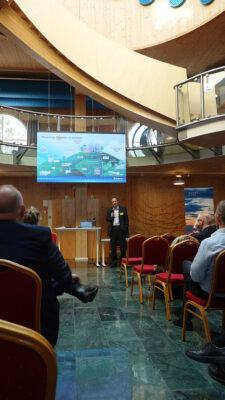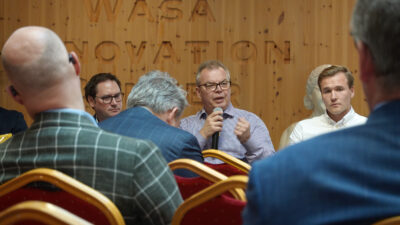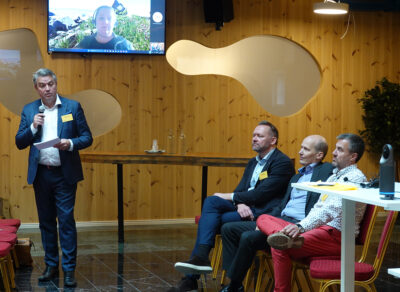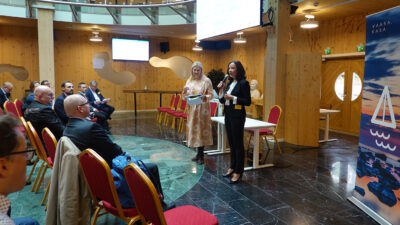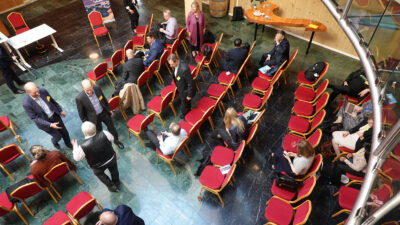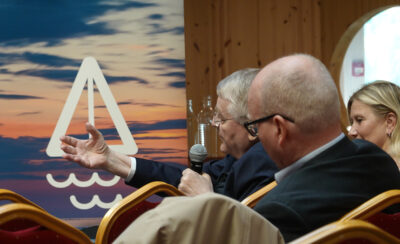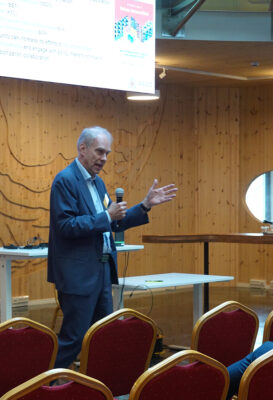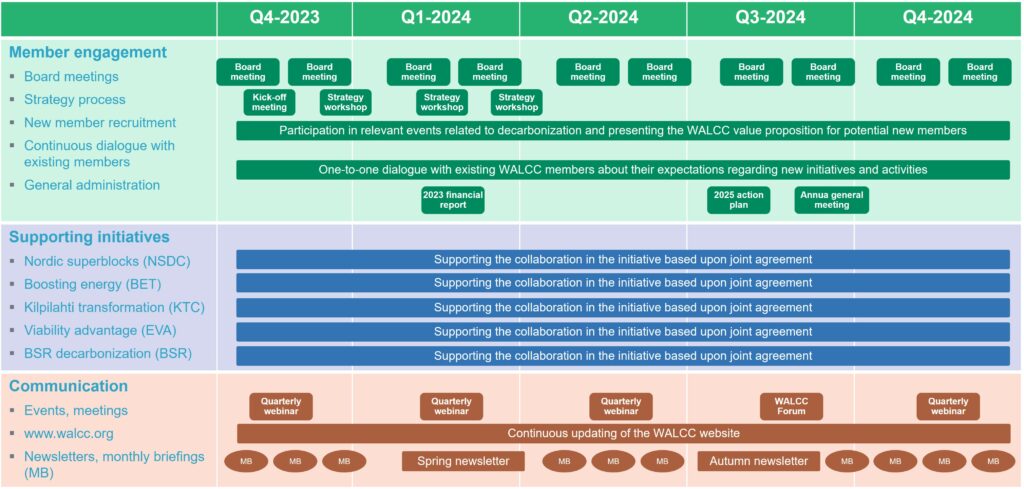29 September 2023
“Transformative innovation in Action” Forum, Vaasa, 19-21 September, 2023: Addressing the need to further accelerate decarbonization
The World Alliance for Low Carbon Cities 23rd Forum in Vaasa saw a strong commitment among participants regarding the need to further accelerate decarbonization efforts through intensified collaboration between the private and public sectors. The first day’s panel discussions on the Aurora Botnia ferry between Vaasa and Umeå were framed by the overview of Vaasa’s Mayor Tomas Häyry who presented the long history of innovation collaboration engaging active participants from both Finland and Sweden. This is well illustrated by the Aurora Botnia ferry which provides an important link between the two countries but is also a research laboratory for the companies that have provided the breakthrough technologies that made the ferry the most environmentally friendly in the world.
The second day of the workshop, organized at Wasa Innovation Center, offered a selection of presentations of highly interesting decarbonization initiatives, where the Forum participants were asked to provide insights and suggestions to be used by the initiatives.
Two announcements were made regarding projects that had been granted financial support by Business Finland. The University of Vaasa will lead a project called Boosting Energy Transformation that will engage researchers and companies around the decarbonization activities in the cities of Vaasa and Pietarsaari. Nordic Superblocks as Decarbonization Catalysts, in turn, is an initiative orchestrated by Synocus with Skanska, KONE, Tietoevry, Granlund, Integrio, and Tampere University as partners. The NSDC initiative will work with cities to develop the idea of superblocks as a new approach to simultaneously reduce carbon emissions from the built environment and increase the quality of life of citizens.
During the third day, participants visited Wärtsilä and ABB to see how these two companies contribute to the carbon handprint, and how decarbonization is the key objective in their ongoing development of new products.
The discussions during the Forum centered on how we can become better at finding the way for different actors to align their interests around decarbonization efforts to secure the highest possible impact. The key topics influencing this are multi-level governance and industrial engagement.
The engagement of leading decision makers from Brussels active in the EU Missions on Climate Adaptation and Climate-neutral and smart cities, as well as Mission board members from Estonia, Finland, France, and Poland, provided a strong foundation for the discussions at the Forum. Finnish cities and regions were also actively engaged in the discussions with representatives from the cities of Vaasa, Pietarsaari, Tampere, and Espoo as well as the regions of Ostrobothnia, Helsinki Uusimaa, and Häme bringing their perspectives to the discussion. These viewpoints were commented upon by representatives from Business Finland and academia.
The interactive structure of this year’s Forum engaged the participants to address the questions and challenges posed by the panelists opening the discussion on respective topics.
City representatives presented their experiences of how cities can guide and shape collaboration with the private sector in pursuit of transformation. The panel discussion included the partners of the Boosting Energy Transformation project anchored in Vaasa as well as the European Viability Advantage initiative currently being developed by Aalto University and the City of Espoo. Panelists and audience members agreed that steering complex transformation initiatives calls on cities to provide the big picture view, and co-orchestrate the dynamically evolving agenda, which is highly dependent on the changing regulation as well as evolving commercial realities. To succeed in this role, cities must cultivate appropriate talent in their own organizations and engage complementary partners that can advance the collaboration.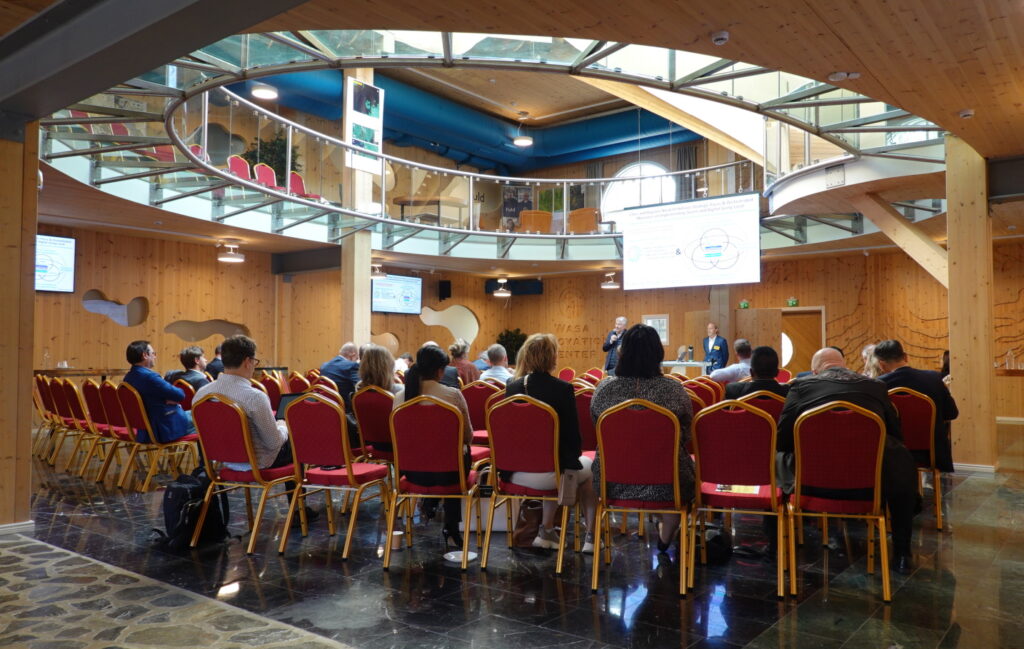
Intermediaries can also take the responsibility for orchestrating decarbonization efforts. Posintra, the local development company supporting the City of Porvoo, leads the transformation of the Kilpilahti industrial zone. The Baltic Sea Institute, in turn, is an organization established by the City of Tampere to support collaboration among the Baltic Sea states. For intermediaries to be successful in their orchestration role, securing proper funding is a key success factor. Another important task is to engage partners around a unifying vision about what the common offering is.
Private companies are increasingly taking the lead in driving decarbonization in collaboration with the public sector, particularly in the energy sector. The Espoo Clean Heat initiative, co-developed by Fortum and the City of Espoo, illustrates how the agenda must continuously be updated when different technologies evolve. The experiences that Fortum has gathered in Espoo have also enabled Fortum to initiate similar projects outside Finland. In South Dublin, Ireland this has resulted in a totally new form of organizing public-private collaboration.
The Nordic Superblocks as Decarbonization Catalysts initiative seeks to institutionalize similar public-private collaboration practices in the building sector by perceiving cities as shared, communal spaces that concentrate resources and scale communities in a better way through superblocks. To support change, the orchestration must put efforts on communication and e.g., use showcases of pioneering solutions to also engage citizens in the collaboration. This offers the cities and the companies the opportunity to display their achievements internationally, which will increase the attractiveness of the city and function as a valuable reference case for the city.
The Forum closed with reflections on the pressing issues around sustainability, innovation, and governance from the municipality, regional, national, and EU levels. It was agreed that cities and regions need to operate as communities of change with industry and other stakeholders. In the case of Espoo, this has meant four central tenants:
- a belief in radical and multidisciplinary creativity,
- shared purpose being the key to success,
- closeness and trust as crucial foundations, and
- the change starts with people’s well-being.
The Ostrobothnian region sees a need for active exchange among the international community. This highlights the WALCC Forum as an opportunity for the cross-pollination of experts and professionals from all over the world in an inspiring local context.
At the Forum’s conclusion, the Alliance’s action plan for 2024 was presented. The already ongoing activities, which were actively discussed during the Forum, provide a strong foundation for the Alliance when moving forward. We all look forward to continuing the Forum’s spirit of collaboration with all those in attendance!
